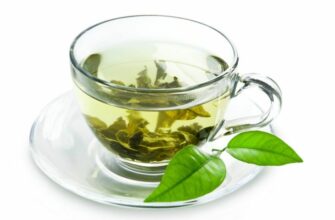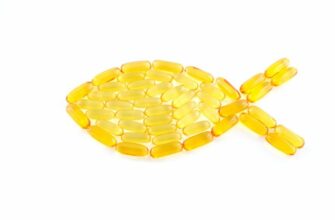Coumarin is a natural chemical compound in many plants. Despite the compound’s toxicity, the plants that contain coumarin have many health benefits. Additionally, some medications contain coumarin. Recent studies show that safe levels of coumarin may have pharmaceutical purposes, though there is not enough research to guarantee this. The compound itself has some clinical values, particularly for modifying edema. Because of its smell, coumarin appears in perfumes and certain imitation cooking products. High dosages of coumarin can cause liver and kidney issues, so it is illegal in several countries.
Origins
In 1820, the French pharmacist Nicolas-Jean-Baptiste-Gaston Guibourt identified coumarin, calling it “coumarine” in an essay presented to the Academie Royale de Medecine. Guibourt isolated the compound from the tonka bean, for which “coumarou” is the French word. English chemist William Henry Perkin successfully synthesized coumarin in 1868. In the centuries following Perkin’s synthesis, researchers developed many other methods of creating or isolating coumarin.
Natural Sources
Many plants contain varying levels of coumarin. The tonka bean has a high concentration, as does vanilla grass, sweet woodruff, sweet grass, and cassia cinnamon. Certain cherry blossom trees contain coumarin, though in lower levels, as do strawberries and apricots. Despite its sweet smell, animals tend to avoid plants that contain it, partially due to its inherently bitter taste and toxicity, though its appetite-suppressing properties may also play a role.
Uses
Regardless of its toxicity, coumarin has many modern uses. Most compounds that are derivatives of coumarin take advantage of the chemical’s anticoagulant properties. Coumarin can block the regeneration and recycling of vitamin K, the vitamin that allows for blood coagulation. In addition to medicines, some pesticides and rodenticides use coumarin. Basic research shows coumarin may also have anti-tumor, antibacterial, anti-inflammatory, and antifungal benefits.
Insulin Effectiveness and Diabetes
Research suggests coumarin may also be useful as an antidiabetic agent. Recent findings show both natural and chemically synthesized coumarin can protect pancreatic cells from damage. They also improve abnormal insulin signaling, which dramatically increases the effectiveness of insulin. Researchers are hopeful future medications can benefit from this characteristic, thus alleviating many of the complications and issues that diabetes causes. There may still be some unknown negatives associated with coumarin, so research is ongoing.
Infections
Many diseases and infections are becoming antibiotic resistant. The research and development of new drugs are integral to overcoming this issue. Coumarin possesses inherent antimicrobial properties. Bacteria use a process called quorum sensing to coordinate gene expression in the most efficient way, allowing them to rapidly adapt to conditions that would otherwise destroy them. Recent studies show coumarin can block quorum sensing, preventing bacteria from surviving harsh environments. Coumarin may not only assist with human infections but could also stop food spoilage and infections in aquaculture.
Treating the Untreatable
Some conditions are difficult or impossible to treat. Certain coumarin-based medications show promise for treating these issues. For example, animal studies involve drugs doctors prescribe for dementia. Human trial subjects tolerated the medication well, with the main side effect being low blood pressure. Currently, physicians typically use antipsychotics to treat aggression. One such drug contains coumarin and acts similarly to serene or anti-aggressive medications.
Inflammation Prevention
The immune system often uses inflammation to fight infections and repair damaged tissues. However, chronic inflammation can be dangerous and cause a variety of medical conditions. By itself, coumarin possesses at least a minor ability to prevent inflammation. Unfortunately, because this quality requires more testing, there are no coumarin-based anti-inflammatory medications available for public use. However, people can potentially receive non-dangerous levels of coumarin to treat many issues, including inflammation.
Coumarin in Cinnamon
One of the most common forms of cinnamon, cassia cinnamon, contains high levels of coumarin and also has other compounds that can prevent or ease a variety of issues. Adding cassia cinnamon in low amounts in food can prevent inflammation, improve insulin effectiveness, and protect the neurons that neurodegenerative diseases target. Ultimately, an excess of coumarin can be dangerous. Keeping the dosages low can allow for an individual to receive the health benefits without the risks that coumarin’s toxicity poses. Given the strong flavor of cinnamon, it’s difficult to consume too much coumarin from the seasoning of drinks and dishes.
Toxicity
Regardless of its possible medicinal benefits, coumarin is an incredibly toxic substance, to the point that many governments restrict its levels in many products. Excess levels of coumarin can lead to kidney and liver damage or failure and interfere with the body’s ability to prevent bleeding. It may also be a cause of neurological dysfunctions in children.
Legal Restrictions
Coumarin is fine in small doses, and the German Federal Institute for Risk Assessment recommends consuming less than 0.1 milligrams of coumarin per kilogram of body weight. They state that higher intake for a short period is not dangerous. European health agencies limit the amount of coumarin from cinnamon that can be in baked goods and desserts. The United States Food and Drug Administration lists coumarin among the “Substances Generally Prohibited From Direct Addition or Use as Human Food.”

 Home
Home Health
Health Diet & Nutrition
Diet & Nutrition Living Well
Living Well More
More




















